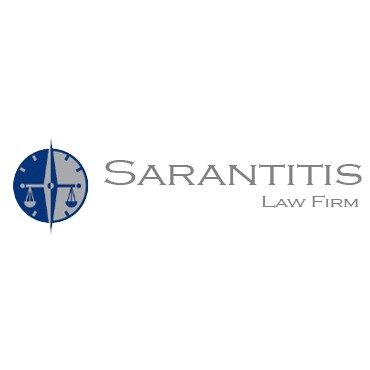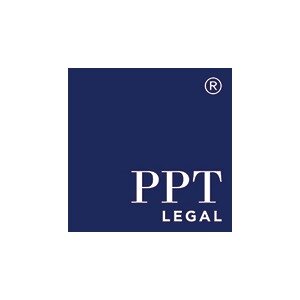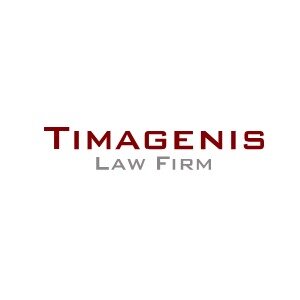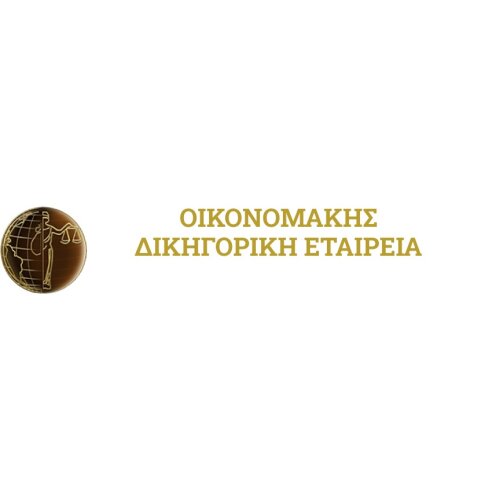Best Renewable & Alternative Energy Lawyers in Piraeus
Share your needs with us, get contacted by law firms.
Free. Takes 2 min.
List of the best lawyers in Piraeus, Greece
About Renewable & Alternative Energy Law in Piraeus, Greece
Piraeus is a major port city and commercial hub close to Athens, playing a key role in Greece’s initiative toward clean and sustainable energy. Renewable and alternative energy law in Piraeus deals with legal frameworks governing the use of non-fossil energy sources such as solar, wind, biomass, geothermal, and hydropower. These regulations aim to promote energy efficiency, support the reduction of greenhouse gases, and encourage investment in greener technologies. Leveraging its strategic location and infrastructure, Piraeus is a focal point for renewable energy projects, particularly related to shipping, industry, and urban developments.
Why You May Need a Lawyer
Several situations may arise requiring expert legal advice or representation in the renewable and alternative energy sector:
- Investing in or developing renewable energy projects such as solar parks or wind farms
- Navigating the complex permit and licensing procedures for energy installations
- Negotiating Power Purchase Agreements or other commercial contracts
- Ensuring compliance with Greece’s and the European Union’s energy regulations
- Managing environmental impact assessments and related community consultations
- Resolving disputes between stakeholders, contractors, or government agencies
- Securing financing or dealing with mergers and acquisitions of energy assets
- Understanding tax incentives, subsidies, or grants available for renewable energy projects
- Protecting intellectual property connected to new energy technologies
A specialised lawyer can guide individuals, businesses, or investors through each step, ensuring smooth project development and legal compliance.
Local Laws Overview
In Piraeus, as in the rest of Greece, renewable and alternative energy is governed by a blend of national laws, European Union directives, and local regulations. Some key aspects include:
- The National Renewable Energy Law sets the framework for all renewable developments, implementing EU targets and mechanisms for green energy growth.
- Licensing and permitting procedures are streamlined for certain projects, but the process remains rigorous, requiring environmental assessments, approvals from multiple agencies, and consultations.
- Piraeus’ proximity to protected coastlines and marine environments introduces additional environmental considerations and restrictions for offshore or shoreline installations.
- Feed-in tariffs, net metering, and incentives are available for certain energy sources and technologies, but eligibility, application, and compliance rules can be intricate.
- Municipal regulations may apply, especially for installations affecting local urban environments or infrastructure.
- Energy transmission and grid access are regulated by the Hellenic Electricity Distribution Network Operator (HEDNO) and subject to specific technical and legal standards.
- Recent legislative updates have sought to simplify renewable project approval in line with EU recovery and sustainability goals, but new requirements and opportunities continue to emerge.
Frequently Asked Questions
What kinds of renewable energy projects are common in Piraeus?
The most common projects include solar photovoltaic installations on residential and commercial buildings, small-scale wind turbines, energy efficiency upgrades in port facilities, and battery storage solutions. Occasionally, marine energy and biomass projects are also explored.
Do I need permission to install solar panels on my property in Piraeus?
Yes, most solar installations require permits or notifications to local and national authorities. Depending on the size and location, full building permits, environmental approvals, and grid connection agreements might be necessary.
Are there incentives for investing in renewable energy in Greece?
Yes, Greece offers various incentives such as feed-in tariffs, net metering, grants, and low-interest loans. Eligibility depends on the type, size, and purpose of the installation, as well as compliance with technical and legal requirements.
What is net metering and how does it work?
Net metering allows energy producers, such as homeowners with solar panels, to feed surplus electricity into the grid and receive credit on their energy bills. This system is governed by national regulations and administered by the energy provider.
Can foreigners or foreign companies invest in renewable energy projects in Piraeus?
Yes, Greece welcomes foreign investment in renewable energy. However, investors must comply with local laws, obtain the required permits, and meet any foreign investment disclosure requirements.
How long does it take to get project approval for a renewable energy installation?
Approval timelines vary depending on project size, technology, and location. Small residential systems can receive permits within weeks, while large commercial or industrial projects may require several months or more due to comprehensive environmental and technical reviews.
What happens if a project impacts protected areas or the coastline?
Projects affecting protected areas, marine environments, or culturally significant sites are subject to stricter scrutiny and may require additional permits or modifications to avoid environmental harm.
Is it mandatory to conduct an environmental impact assessment?
Most medium to large-scale renewable projects, especially those near sensitive areas, must undergo an environmental impact assessment. The process ensures potential effects are identified and mitigated according to Greek and EU standards.
Who regulates energy markets and grid connections in Piraeus?
The Regulatory Authority for Energy (RAE) oversees energy market regulation in Greece, while HEDNO manages grid access for most distributed generation, including renewables in Piraeus.
What should I consider when signing a Power Purchase Agreement?
Key considerations include contract duration, price terms, purchase obligations, penalty clauses, grid connection details, and compliance with Greek and EU market regulations. Legal advice is recommended before signing.
Additional Resources
If you are seeking more information or support regarding renewable and alternative energy issues in Piraeus, these organizations may be of assistance:
- Regulatory Authority for Energy (RAE) - for regulations, market supervision, and licensing information
- Ministry of Environment and Energy - national policy, incentives, and legal frameworks
- Hellenic Electricity Distribution Network Operator (HEDNO) - grid connection procedures and technical requirements
- Piraeus Municipal Authority - local rules and urban installation permissions
- Greek Center for Renewable Energy Sources and Saving - technical advice and development programs
- Hellenic Association of Photovoltaic Companies - industry updates and best practices
- Local chambers of commerce and industry groups - networking and guidance
Next Steps
If you need legal assistance with renewable or alternative energy matters in Piraeus, consider the following steps:
- Identify your specific needs - project development, compliance, investment, dispute resolution, or contracts
- Gather all relevant documentation such as property deeds, technical studies, draft contracts, and communication with authorities
- Consult with a lawyer specializing in energy law and familiar with both national and local regulations in Piraeus
- Discuss your goals and challenges clearly to receive tailored advice and strategies
- Stay informed about legal and policy updates, as regulations can change in line with European Union directives and Greek targets
- Engage early with relevant authorities to avoid unnecessary delays or legal complications
Whether you are an investor, a project developer, a property owner, or a business looking to transition to cleaner energy, professional legal guidance can help you make the most of opportunities and ensure full legal compliance in Piraeus, Greece.
Lawzana helps you find the best lawyers and law firms in Piraeus through a curated and pre-screened list of qualified legal professionals. Our platform offers rankings and detailed profiles of attorneys and law firms, allowing you to compare based on practice areas, including Renewable & Alternative Energy, experience, and client feedback.
Each profile includes a description of the firm's areas of practice, client reviews, team members and partners, year of establishment, spoken languages, office locations, contact information, social media presence, and any published articles or resources. Most firms on our platform speak English and are experienced in both local and international legal matters.
Get a quote from top-rated law firms in Piraeus, Greece — quickly, securely, and without unnecessary hassle.
Disclaimer:
The information provided on this page is for general informational purposes only and does not constitute legal advice. While we strive to ensure the accuracy and relevance of the content, legal information may change over time, and interpretations of the law can vary. You should always consult with a qualified legal professional for advice specific to your situation.
We disclaim all liability for actions taken or not taken based on the content of this page. If you believe any information is incorrect or outdated, please contact us, and we will review and update it where appropriate.

















